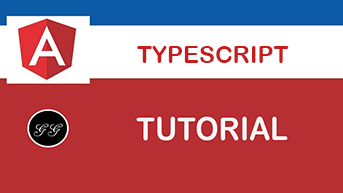Type: any
You could ask — what if I don't know what kind of value my variable will have?
- Let's flush our function code and type ine the following:
- Hover over the
myVardeclaration, what do you see? - What is actually type of the variable
myVar? Let's check it: - Now let's add an explicit type, cast after the var declaration:
let myVar;
myVar = 1; //number
myVar = true; //boolean
myVar = 'mdb'; //string
The TypeScript compiler doesn't complain. Why!?

TypeScript allows you to use a special type any. It allows you to use dynamic typing but
importantly — it requires you to use it consciously.
myVar = 1; //number
console.log(typeof(myVar));
myVar = true; //boolean
console.log(typeof(myVar));
myVar = 'mdb'; //string
console.log(typeof(myVar));
The output:

let myVar: number;Immediately, the compiler will show two errors regarding the second, and third assignments

Other types:
We used already four different types of variables (number, string, boolean
and any). Are there any others? Yes, there are.
let a: number; //numeric type
let b: string; //string
let c: boolean; //true or false
let d: any; //any (dynamic)
let e: number[] = [1,2,3]; //array of numbers
let f: string[] = ['a','b','c']; //array of strings
let g: any[] = [true, 1, 'a']; //array of any
As you can see, except for basic types which we already covered you can also create arrays of different types
including the any type. There is also one more type of variable — enum but we will
cover it in the future.
